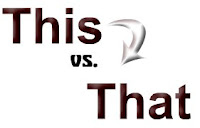
The terms Internet and World Wide Web are often used in everyday speech without much distinction. However, the Internet and the World Wide Web are not one and the same. The hardware and software infrastructure of the Internet establishes a global data communications system between computers. In contrast, the Web is one of the services used to gain access to and through the Internet. It is a collection of interconnected documents and other resources, linked by hyperlinks and URLs.
One of the greatest things about the Internet is that nobody really owns it. It is a global collection of networks, both big and small. These networks connect together in many different ways to form the single entity that we know as the Internet. In fact, the very name comes from this idea of interconnected networks.
The Internet
Simply, the Internet is a network of networks -- and there are all kinds of networks in all kinds of sizes. It connects millions of computers together globally, forming a network in which any computer can communicate with any other computer as long as they are both connected to the Internet. It is a network of networks that consists of millions of private, public, academic, business, and government networks, of local to global scope, that are linked by a broad array of electronic, wireless and optical networking technologies. The Internet carries a vast range of information resources and services, such as the inter-linked hypertext documents of the World Wide Web (WWW) and the infrastructure to support electronic mail.
You may have a computer network at your work, at your school or even one at your house. These networks are often connected to each other in different configurations, which is how you get groupings such as local area networks (LANs) and regional networks. Your cell phone is also on a network that is considered part of the Internet, as are many of your other electronic devices. And all these separate networks -- added together -- are what constitute the Internet. Even satellites are connected to the Internet.
 |
| WWW's "historical" logo, created by Robert Cailliau |
The World Wide Web (WWW aka Web)
The World Wide Web (abbreviated as WWW or W3, and commonly known as the Web) is a system of interlinked hypertext documents, (text displayed on a computer or other electronic device with references (hyperlinks) to other text that the reader can immediately access, usually by a mouse click or keypress sequence) accessed via the Internet. With a web browser such as Internet Explorer or Firefox, one can view web pages that may contain text, images, videos, and other multimedia and navigate between them via hyperlinks.
Using concepts from earlier hypertext systems, British engineer and computer scientist Sir Tim Berners-Lee, now Director of the World Wide Web Consortium (W3C), wrote a proposal in March 1989 for what would eventually become the World Wide Web. At CERN in Geneva, Switzerland, Berners-Lee and Belgian computer scientist Robert Cailliau proposed in 1990 to use hypertext "... to link and access information of various kinds as a web of nodes in which the user can browse at will", and they publicly introduced the project in December.
"The World-Wide Web was developed to be a pool of human knowledge, and human culture, which would allow collaborators in remote sites to share their ideas and all aspects of a common project."
Conclusion
So, to better understand the difference between internet and web, think of it this way:
Consider the internet to be the highway and you are driving through the city looking for access to this highway/internet. In order to get on the highway/internet, you will have to be able to access it through the exit/ramp/world wide web.





No comments:
Post a Comment
Hey! Thanks for leaving your comment!